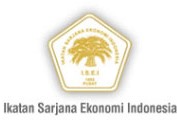Macro Study of Spatial Development Area on Tourism Village
(1) Agriculture Faculty, University of Udayana, Bali,
Abstract
Macro study is one approach that combines the rational method based on the results of previous studies by the authority with the empirical method utilizing the survey techniques. The purpose of this macro study is to identify and analyze the potentials, problems, and the limiting factors, and the needs of the regency; and to recommend the programs and models required by the community to achieve the sustainable development. This research uses the Participatory Rural Appraisal method, the interview techniques (Semi Structured Interview), the technique of focused group discussion (FGD), the Rapid District Appraisal (RDA), then it is analyzed by the empirical and dynamical systems. The overview of macro studies is particularly relevant in developing the regions, especially the rural areas, based on the existing advantages, such as in Tabanan Regency. Tabanan Regency is a granary in Bali Province and the zoning of agricultural commodities in quadrant III,which is the rural farming area with combined functions between the cultivated and rural areas supported by the tourism department. The studies of the areas in the form of potential analysis, problem analysis, requirement analysis become the guidelines for preparing the development scenarios and program formats. The studies will then constitute the factors driving the realization of sustainable development of tourism villages in supporting the sustainable agriculture.
Keywords
Full Text:
PDFReferences
Awirya, Agni A. (2011). Pengembangan Sektor Utama Regional, Pendekatan Efisiensi Teknikal dan Siklus Bisnis. Studi Kasus di Propinsi Bali. Jurnal JEJAK, 14(1), 43-53.
Badan Perencanaan Pembangunan Daerah (Bappeda) Kabupaten Tabanan. (2014). Materi Teknis RTRW Kabupaten Tabanan Tahun 2011-2031. Tabanan, Propinsi Bali.
Badan Pusat Statistik Kabupaten Tabanan. (2014). Tabanan dalam Angka 2013. Tabanan, Propinsi Bali.
Dinas Pertanian Tanaman Pangan Kabupaten Tabanan. (2014). Laporan Tahunan Pertanian. Tabanan, Propinsi Bali.
Hudiyanto. (2008). Ekonomi Politik. Penerbit: PT Bumi Aksara, Jakarta.
Jones, S. (2005). Community Based Tourism:The Significance of Social Capital. Annals of Tourism Research, 32(2), 303–324.
Karolina, Lesta. (2011). Analisis Keterkaitan Ketersediaan Infrastruktur dengan Pertumbuhan Ekonomi di Indonesia: Pendekatan Analisis Granger Causality. Jurnal JEJAK, 4(1), 14-22.
Laderach, P. (2007). Reflective Peace Building: A Planning, Monitoring, and Learning Toolkit. Notre Dame: the Joan B. Kroc Institute for International Peace study.
Nurman. (2006). Strategi Pembangunan Daerah. PT. Raja Grafindo Persada, Jakarta.
Polk, Merritt. (2010). Sustainability in Practice: The Interpretation of Sustainable Development in a Regional Planning Area for Dialogue and Learning in Western Sweden. Journal of Planning Theory and Practice, 11(4), 481-497.
Sarwono. (2016). Analisis Faktor-faktor Pertumbuhan Ekonomi di Kawasan Pantura Barat, Jawa Tengah. Jurnal JEJAK, 9(1), 150-165.
Setiono, D. (2011). Ekonomi Pengembangan Wilayah (Teori dan Analisis). Lembaga Penerbit Fakultas Ekonomi Universitas Indonesia, Jakarta.
Tarigan, R. (2005). Perencanaan Pembangunan Wilayah. Penerbit Bumi Aksara, Jakarta.
Terluin, I. (2003). Differences in Economic Development in Rural Regions of Advanced Countries: An Overview and Critical Analysis of Theories. Rural Studies Journal, 19(2), 327–344.
Wahjudin, Sumpeno. (2006). Perencanaan Desa Terpadu; Panduan Perencanaan Berbasis Masyarakat. Jakarta: CRS Indonesia.
Wrihatnolo, R. (2008). Pendekatan Kewilayahan dalam Perencanaan Pembangunan. Penerbit Institute for Development and Policy Study, Jakarta.
Wrihatnolo, R. (2009). Konsep dan Pendekatan Pembangunan. Penerbit Institute for Development and Policy Study, Jakarta.
Refbacks
- There are currently no refbacks.

This work is licensed under a Creative Commons Attribution 4.0 International License.






